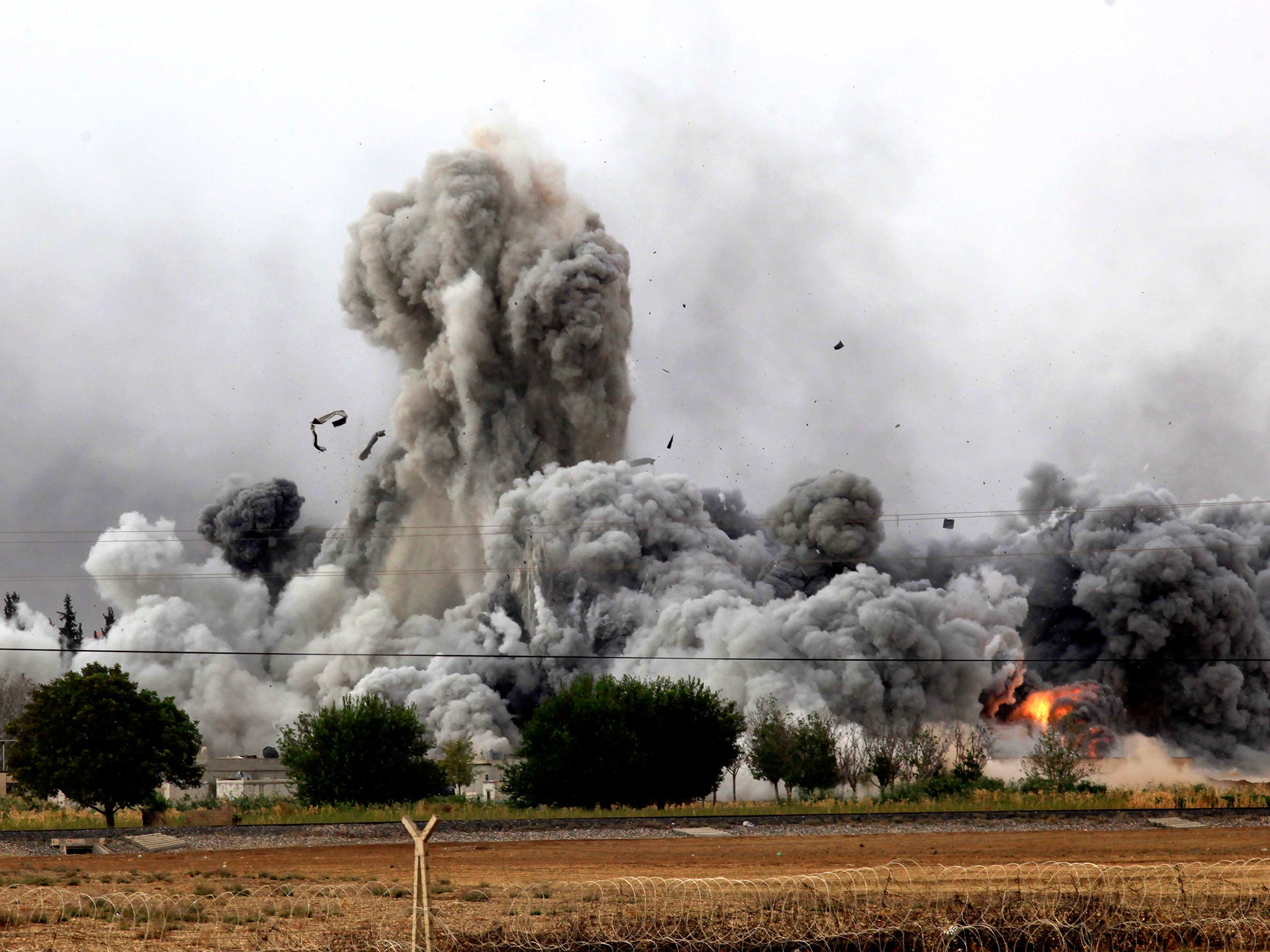America's bombs are only making Isis stronger, and al-Qaeda has just proven it
By helping reinforce the jihadists' claims of a Western 'crusade' against Muslims, America has helped bring otherwise disparate groups of extremists closer to Isis

Your support helps us to tell the story
From reproductive rights to climate change to Big Tech, The Independent is on the ground when the story is developing. Whether it's investigating the financials of Elon Musk's pro-Trump PAC or producing our latest documentary, 'The A Word', which shines a light on the American women fighting for reproductive rights, we know how important it is to parse out the facts from the messaging.
At such a critical moment in US history, we need reporters on the ground. Your donation allows us to keep sending journalists to speak to both sides of the story.
The Independent is trusted by Americans across the entire political spectrum. And unlike many other quality news outlets, we choose not to lock Americans out of our reporting and analysis with paywalls. We believe quality journalism should be available to everyone, paid for by those who can afford it.
Your support makes all the difference.Earlier today, a spokesperson for al-Qaeda in the Arabian Peninsula (Aqap), the Yemen-based terrorist group best known for its expert bomb-makers, released a short statement on the subject of Syria and Iraq. In it, he confirmed his group’s support for Islamic State (Isis) and reaffirmed the need for all jihadists in Syria and Iraq to “forget their differences, bring an end to their infighting” and tackle the “Crusader campaign together”.
He also called on “all those who can” to renew their attacks upon “the Americans, militarily and economically […] because they are the leaders of the war and the foundation of this campaign.”
Until now, we have not seen anything from an al-Qaeda affiliate officially stating its support for Isis. Certainly, some figures have expressed ambivalence towards the so-called caliphate, but that Aqap has released a message openly referring to members of the group as “its brothers” is very significant. Until today, the official al-Qaeda line on Isis was that they were renegade extremists and the cause of great discord within Islam. This, it seems, is no longer the case.
That said, it's important not to misinterpret this as an Aqap pledge of allegiance to Isis. The statement is careful to circumnavigate around giving such a pledge, which would mean Aqap’s total subordination to Isis’ leader, Abu Bakr al-Baghdadi. Instead, it points towards a move from rhetorical enmity to co-existence and, perhaps one day, cooperation in a common cause.
Today’s statement is symptomatic of a wider trend in global jihadism that has been galvanised by the anti-Isis coalitions intervention. Because of it, jihadists that were once at each other’s throats are being pushed back together, old differences are being forgotten and rivalries ignored. Isis, it seems, is becoming less ostracised by the day.
Certainly, there is still a long way to go before jihadist groups like Ahrar al-Sham can forgive Isis for decapitating one of its leaders and killing another in a suicide operation, but the possibility of reconciliation one day is back on the cards.
Before the air-strikes in Iraq and Syria, this was not the case. In fact, the ideological, military and political gulf between Isis and other jihadists was only seeming to widen. Now, though, the opposite seems to be happening – with jihadists all over the world slowly pulling back together after Isis’ shock caliphate announcement.
Now, I am not trying to argue that military intervention against Isis is wrong. On the contrary, it is an absolute necessity in the short-term if we have any hope of rolling the group back. However, as I said in June, this intervention must not be led by Western, predominantly Christian, states.
The perception that it is part of a modern-day “Crusade”, as it has predictably been spun by jihadist propagandists, is an immensely effective ideological weapon for Isis – it gives them perceived legitimacy, where they had none before.
As the counter-extremism think tank Quilliam has consistently said, since intervention against Isis became inevitable, Western nations must not be the ones at the helm of the anti-Isis coalition. It is imperative that Sunni Muslim-majority states take up this responsibility instead, for then and only then, will the jihadists’ principal narrative - the Crusader paradigm - be cleaved in two.
Join our commenting forum
Join thought-provoking conversations, follow other Independent readers and see their replies
Comments